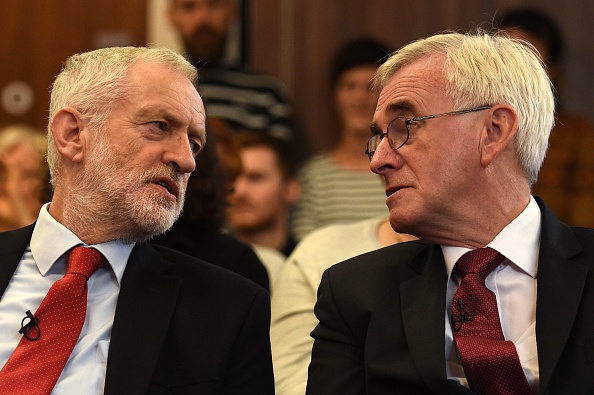Labour manifesto will be ‘significantly’ more radical than in 2017

Labour insiders have branded the party’s election manifesto as “significantly” further to the left of the party’s 2017 offering.
Labour will release its General Election manifesto on Thursday, after holding a Clause V meeting of senior party figures and union bosses last night.
Read more: Jeremy Corbyn labels Labour nationalisation plans as very modest
Labour leader Jeremy Corbyn said the manifesto was agreed upon unanimously and he was “very, very proud” of the “transformative document” as he was leaving the meeting last night.
The manifesto reportedly includes banning people from working more than 48 hours a week, A Right to Food Act to control prices, an extension of the sugar tax and a tax on oil companies, according to the Mail on Sunday.
Labour insiders have also confirmed the party’s plans to nationalise water and energy utilities, the railways, Royal Mail and BT.
When party chairman Ian Lavery was asked by the the Mail on Sunday if the manifesto was more radical than from the 2017 election, he confirmed that it was.
“We sorted out all the problems and it was fantastic,” he said.
“This is the best manifesto you are likely to see.”
Conservative international trade secretary Liz Truss branded it as a “Marxist manifesto” that would “plunge this country into extortionate debt and deliver division and delay”.
Senior Labour policy advisor Andrew Fisher wrote the manifesto, just months after saying he “no longer had faith” the party could succeed.
Fisher was dismayed at the “lack of professionalism, competence and human decency” from those in Corbyn’s team.
Other manifesto policies already announced include free dental checks for everybody in the UK, a second Brexit referendum and a £40bn increase in health spending over five years.
One point of contention among Labour figures is the party’s position on ending freedom of movement in its negotiated Brexit deal.
Read more: BT CEO warns Labour’s part nationalisation of BT could cost £100bn
Unite the Union boss Len McCluskey recently said Labour needed to end freedom of movement within the EU.
Meanwhile, other major party figures, such as Momentum’s Jon Lansman, have said the opposite.